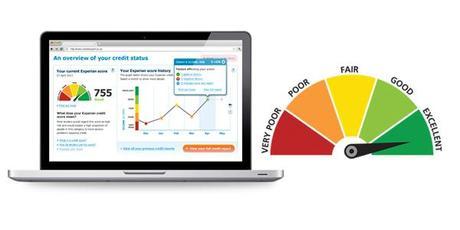
Why should you be bothered about your credit rating?
Well, if you think about it, the banking industry has had a rough time of it lately. So it’s not surprising that they should be extra careful when signing up new customers in an attempt to avoid bad debts.
Credit history
The tool they use to check you out is your credit history – your past performance – and if it’s not good, or at best mediocre, you may find your chances of getting that loan or new credit card you want have taken a nose-dive.
Different companies will differ slightly in the way they grade applicants, but broadly speaking there are five bands:
- Very poor
- Poor
- Fair
- Good
- Excellent
Obviously the aim is to be in the last two sectors, but there are lots of things you can do to improve your credit rating if you’re not there yet.
Level of risk
Lenders will be interested in your current financial position, but they are also interested in your credit history. They are trying to form an overall impression of what level of risk you represent.
Here are five ways to manage your finances and give them the best possible impression of you as a potential client and boost your chances of getting the credit you need:
- Get credit and use some, but stay well under your credit limit. Using your credit wisely will give you a track record which shows that you can handle your finances.
- Make sure you keep your personal details up to date, including any change of address on the register of electors. This is very important as it’s used by companies to help confirm your identity.
- Break any financial links that don’t apply to you any more. Financial links can harm your credit score even though you yourself have done nothing wrong. It need not be a divorce or separation where you have had previous joint finance agreements with a partner. It could be you have had a joint payment scheme for utilities with someone else as a student, but now you have moved on. It’s important to break those links.
- Space out any applications you make for credit. As we’ve already said anyone looking into your credit history will want to look at the whole picture and if you are seen to be making a number of credit applications in a row that may be construed as you being in financial trouble and needing money quickly.
- Get yourself a credit report and look at what it tells you about yourself. Is all the information on there correct? Keep a check on your credit utilisation. How much of your credit limit are you actually using on your cards? Lenders generally don’t like to see customers who are maxed out on their cards because it’s another sign of possible financial trouble.



